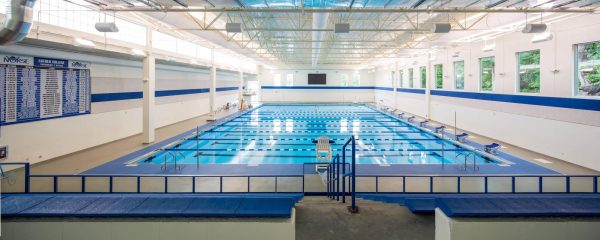On-campus living and a necessity for change
Everyone has big dreams that they look forward to as kids. They can be really out there and unreasonable, like becoming an astronaut or pop star, or just the more normal things, like getting to own your first car. Regardless of the dream though, they are always very exciting when we finally achieve them. For me, I had two big dreams since around middle school: going to college, and having my own apartment. As an independent person from a young age, these were goals I very much looked forward to, a feeling I think many can identify with.
So you can imagine my dismay, when, after deciding on Luther for my college education, I discovered that this was a residential campus. As I am sure many of you know, this means that, without various accommodations, you are required to live in on-campus housing for all four years, you are required to have at least one roommate for each of those years, and you are required to be on some sort of meal plan for most, to all of it. It is my general belief that this policy, and the hoops one must jump through to escape it, are significant detractors away from Luther for many.
The idea of a residential campus as I understand it is twofold. Being all together creates a tight knit community between students as they all live in close proximity, eat together, walk to classes, and so on. This bond with our peers as not only classmates, but roommates and neighbors, fosters strong relationships which will last past our years at Luther.
The on-campus housing requirement also simplifies many aspects of college life. Instead of trying to find off-campus housing, navigating leases and paperwork, and cooking every meal for ourselves, we can focus more on schoolwork, athletics, music, and whatever else we came to Luther to focus on.
While I do not necessarily dispute these goals or the positive impacts they have had for many students here, I think that the residential requirement of this campus creates several other problems which affect many students, and detract from Luther in unforeseen ways. In my first year I have developed several great relationships which I plan to continue for the rest of my life, but I have also dealt with a myriad of frustrating issues related to housing and food, which I know I am not alone in.
For most first-year students, the residential aspect of Luther’s campus is hardly felt. It is common practice across the board for colleges to require first-year students to live in dorms, generally in order to get them connected with their new community. Sophomore or junior year, however, is where things begin to branch off. While most second to third year college students are looking for apartments, signing leases, and beginning to learn how to live on their own, here at Luther we are continuing a cycle of various dorms.
While these dorm experiences are not bad ones, and often create relationship opportunities we may not have otherwise, they deprive us of valuable life experiences most students have during their college years. Signing your first lease and living outside of the campus bubble is an important milestone that can be really helpful to pass during the college years. Instead of trying to navigate those waters and entering the workforce simultaneously as we leave college, we should have already had that experience, so that we can feel comfortable as we try to find our first jobs in the real world.
Another less universal, but still important issue intertwined with Luther’s residential campus, is the different health needs of students. I am one of many students here at Luther with somewhat intense health issues related to food, which can make being on a meal plan and being without a kitchen of our own incredibly frustrating.
Despite Luther Cafeteria’s best efforts to be as accommodating to us as possible, the reality is that the best solution for these students is to have our own residence and kitchen. While this is possible at Luther, it requires a great deal of jumping through hoops and cutting of red tape. My own experience in this area resulted in my decision to transfer, due in great part to struggling with the system for several months without achieving much.
Outside of meal plan related issues, there are also students on this campus who have equally important reasons for needing their own space separate from a roommate. Sleep issues, mental health struggles, and varying disabilities are just a few reasons why students may need their own room or residence. While getting the accommodation to live on your own here at Luther is possible, it requires a similar dance with administration which can be very frustrating, and doesn’t always yield good results. It is also completely valid for students who do not have any health concerns to want their own space by this point in their life, which is even harder to achieve, if one can at all.
Though I believe Luther makes a sincere effort to have accommodations available for those who need them, it is clear to me from my own experiences in this area that the system for gaining these accommodations is somewhat flawed. From confusing signals on who to speak to, to unproductive meetings with some departments, getting the dining and housing options some students need can be a very frustrating process.For many students with these issues, myself included, it can seem very logical to simply go somewhere elsewhere these accommodations are not a burden, but are in fact the norm.
While I wouldn’t necessarily say Luther should be the same as everywhere else, I believe that the college would benefit greatly from making this policy more optional, as it would improve the quality of life for many students with different health needs, and be more attractive to students who want to pursue an independent lifestyle. While it may be too late to keep me as a student, there are many others here that Luther can improve life for, and I hope for their sake that things can get a bit easier.





